Top Chinese Brands Share Best Practices on Thriving Amid Increasing Global Competition
Digital technology and social media are offering new opportunities and possibilities for innovation in China, but they also pose disruptive challenges for brand communication and marketing. What are the challenges facing Chinese brands in an increasingly globalized world, and how can they overcome these hurdles? Can Chinese brands close the gap with their international counterparts in terms of their ability to differentiate themselves and become global trend setters? These were some of the questions discussed by an array of Chief Marketing Officers (CMO’s) from some of China’s leading brands at the “New Driving Forces of Chinese Brands” forum, jointly held in Beijing on Monday by the Cheung Kong Graduate School of Business (CKGSB), together with the world’s largest communications group WPP’s market research and brand consulting division, Millward Brown, and the Australian Chamber of Commerce (AustCham).
“To succeed in today’s market, a Chinese brand needs to have a distinctive image and provide clear value to its customer base. It also needs to constantly introduce new products to meet the fast-evolving needs of consumers,” said Dr. Teng Bingsheng (pictured below), Associate Professor of Strategy and Associate Dean at CKGSB, when asked to identify the key to success for domestic brands.
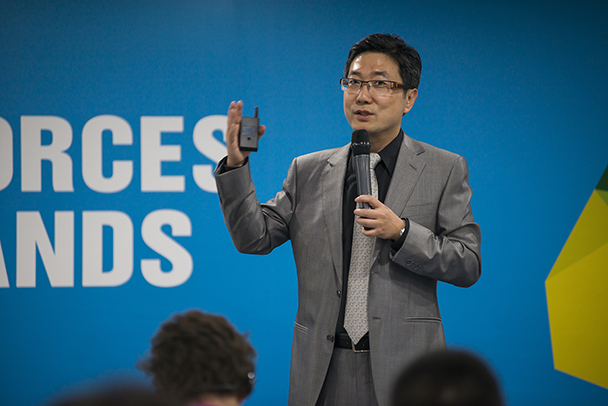
Teng delivered the first keynote speech of the day, outlining some essential strategies for Chinese companies in their quest to go global. Stressing the importance of a good brand in elevating a company’s value, Prof Teng cited the example of Harley Davidson motorbikes, which he said are more about a consumer’s emotional attachment to the bike than about the performance of the bike itself. “More and more Chinese brands are now appealing to the emotions of the customer. For instance, smartphone maker Xiaomi’s conferences are closer in nature to a religious gathering than a company forum,” Teng said, adding that the aura Xiaomi has created around itself in the minds of consumers makes it that much harder for its competitors to thrive.
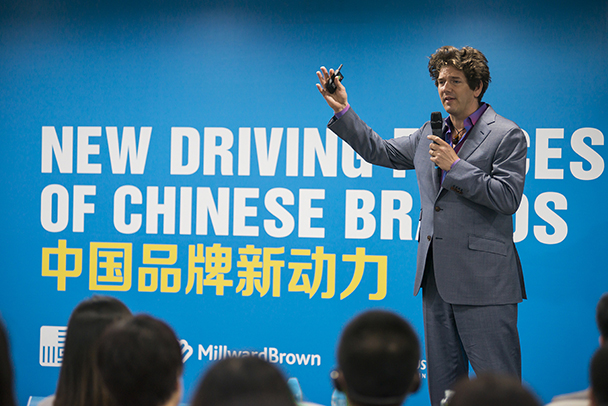
Marc de Swaan Arons (pictured above), CMO of Millward Brown Vermeer, then gave a talk on “Marketing 2020”, in which he outlined future trends in the industry, chief among them being the impact of globalization. Consumers are globalizing, he said, and brands are having to globalize as a result. The new generation is holding today’s companies to greater account, and companies are being forced to explain why they exist and what their purpose is. But de Swaan Arons stressed the growing importance of CMO’s, saying, “Marketing people were previously seen as spenders, but are now seen as influencers, helping to drive global strategy forward.”
Doreen Wang, Global Head of BrandZ at Millward Brown, then outlined BrandZ’s Top 100 Most Valuable Chinese Brands. In 2011, all of the top five brands were SOEs, but today Tencent and Alibaba hold the top two spots respectively, while Baidu is in fifth place. “Five years of BrandZ China rankings give us a clear insight into how brands have strengthened during an extremely dynamic period. Those which have grown in value have constantly innovated, based on a sound understanding of rapidly evolving technology and consumer behavior. Investment in brand, innovation and connecting with consumers will now be the critical success factors for brands operating in increasingly competitive categories.”
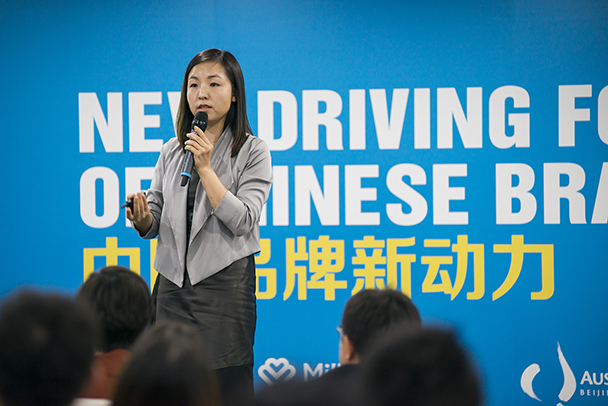
Wang (pictured above) also praised the marketing strategy behind President Xi’s “Chinese Dream”, saying that implementing a Chinese dream with an inspiring brand ideal would be essential for the future success of Chinese companies.
Two lively panel discussions followed, with Xu Jin, Senior Vice President, Ifeng (Phoenix) moderating on “Driving Factors for the Growth of Chinese Brands.” Song Jidong, CMO, Mengniu Dairy, stressed the importance of embracing the digital age, which he said was blurring the boundary between online and offline.
Cheng Junyi, Vice President of Marketing, Didi Taxi agreed, saying, “The biggest change for me is the change from marketing around products to marketing around technology.”
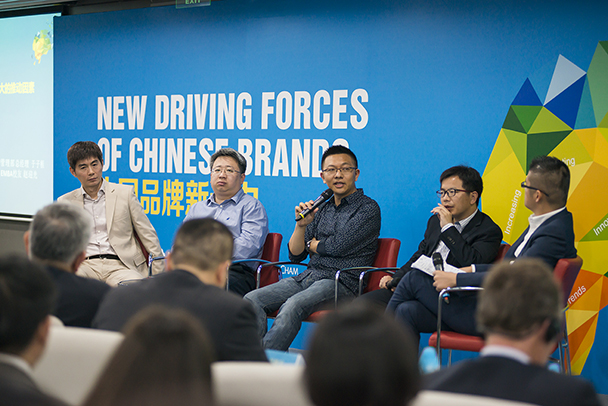
From left to right: Yu Zihuan (General Manager, Market and Brand Management, Sanjiu Medical), Zhao Yingguang (Board Chairman & CEO, HSTYLE), Cheng Junyi (Vice President of Marketing, Didi Taxi), Song Jidong (CMO, Mengniu Dairy) and Xu Jin (Senior Vice President, Ifeng)
Marketers today, Cheng said, had to make sure that all their campaigns could be forwarded and shared. Similarly, Zhao Yingguang, Board Chairman & CEO of fashion label HSTYLE described a successful low-cost marketing campaign his company had run by encouraging consumers to post photos of themselves wearing the company’s branded clothes. Zhao, a CKGSB alumnus, added to laughter from the standing-room only crowd, “The constant challenge we face is to understand people, but the variable is that people constantly change!”
Professor Teng Bingsheng moderated the second panel of the day on “Brand Globalization” in which Cheng Shisheng, General Manager of LeTV’s Brand and Communication Center, gave an impassioned defense of his company’s strategy to expand from online content into the smartphone and auto markets. Teng pointed out it is typically thought to be suicidal for a company to blur its image in the mind of its consumers, but Cheng responded that it would be cowardly for a Chinese company not to take on global rivals and markets, arguing that traditional concepts such as brand loyalty are not as important to the next generation of consumers. He also quoted LeTV’s Founder and CEO, Jia Yueting, an alumnus of CKGSB’s CEO Class, who claims that you can only be truly disruptive when 99% of people are against your idea.
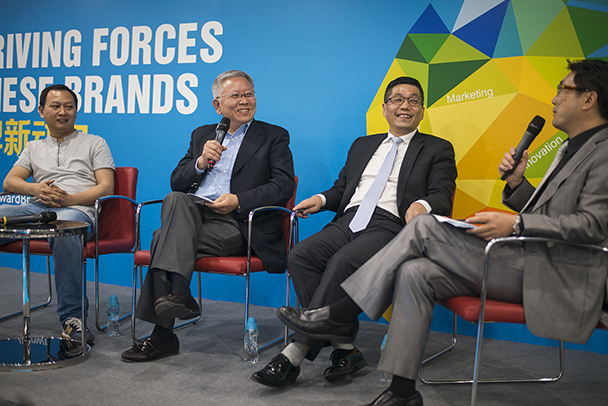
From left to right: Cheng Shisheng (General Manager of LeTV’s Brand and Communication Center), Ken Hsu (Senior Vice President, Siemens), Zhao Jihong (President, ROBAM), and Teng Bingsheng (Associate Professor of Strategy and Associate Dean at CKGSB)
Another CKGSB alumnus, ROBAM President Zhao Jihong offered a different take on Chinese brands going global, with kitchenware maker ROBAM ranking 19th in BrandZ’s Brand Contribution list, one place above Tencent. “Like Tencent, ROBAM is only focusing on China right now. But China is already a global market,” said Zhao. Ken Hsu, Senior Vice President, Siemens offered the perspective of a MNC in China, saying, “If you dominate the China market, you will already be world number one by market share. So if you are already number one, there has to be a good reason for a Chinese company to go overseas.”
.jpg)
Food for thought indeed for an audience of over 200 executives, who stayed until the very end of a thought-provoking afternoon.